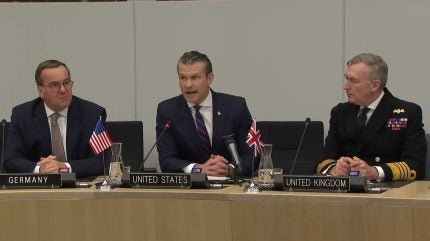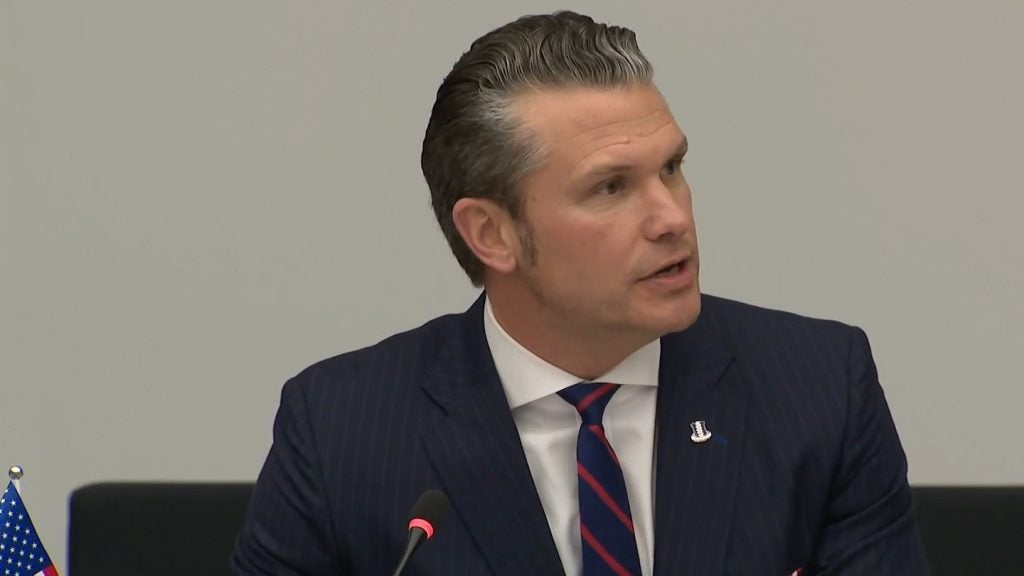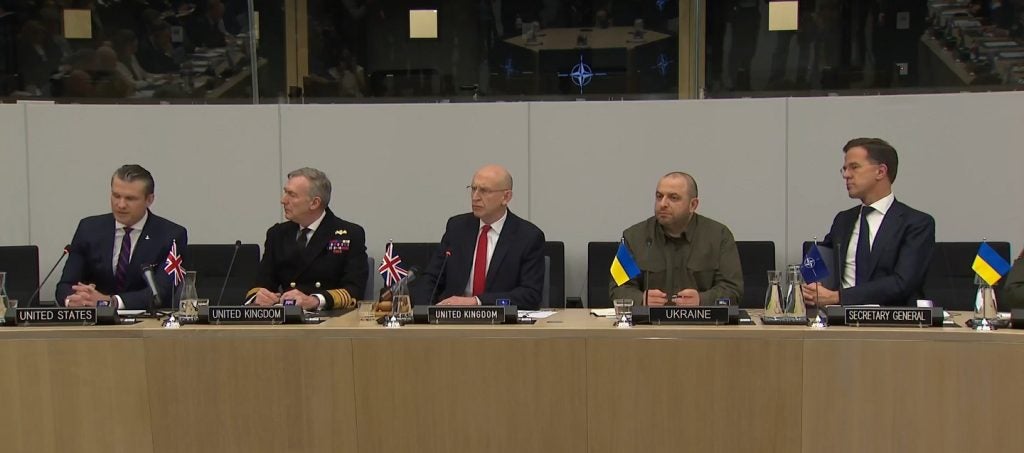
The US has fired the first shots of what could lead to the gradual dismantling of the NATO security alliance, lecturing European allies during a meeting of the Ukraine Defence Contact Group (UDCG) to “take ownership” of conventional security on the continent.
Speaking before a meeting of the UDCG in Brussels on 12 February ahead of a meeting of NATO defence ministers, US Secretary of Defense Pete Hegseth said European allies must shoulder the responsibility of security on the continent.
“Our transatlantic alliance has endured for decades, and we fully expect that it will be sustained for generations to come. But this won’t just happen; it will require our European allies to step into the arena and take ownership of conventional security on the continent,” Hegseth said.
Continuing, Hegseth said the US would “no longer tolerate” what Washington considers an “imbalanced relationship which encourages dependency”, in a startling eight-minute speech to NATO defence ministers and other representatives of the UDCG, including Ukraine’s Defence Minster Rustem Umerov.
“Rather, our relationship will prioritise empowering Europe to own responsibility for its own security,” Hegseth said.
“We challenge your countries, and your citizens, to double down and recommit yourselves not only to Ukraine’s immediate security needs, but to Europe’s long-term defence and deterrence goals,” he told European defence ministers.

Hegseth said that US President Donald Trump was seeking European NATO members to spend 5% of their national GDP on defence, a huge increase from the 2% NATO benchmark was described as “not enough”.
Of European NATO members, only Poland is spending around 5% of its GDP on defence, with most other in or around the 2% mark and some significantly below.
Shutting down questions from the gathered media, the stand-in chair of the UDCG, UK Defence Secretary John Healey, merely said “we hear you, we hear your concerns”, in response to Hegseth’s extraordinary speech.
The US maintains around 80,000 military personnel stationed in Europe, but the mention of requiring Europe to ensure its own conventional security on the continent could point to a further redistribution of forces towards the Pacific theatre.
In effect, Hegseth has laid out President Trump’s America First agenda and how it will impact defence, in a move that could have driven a wedge between Washington and European capitals.
Any increase in European defence spending would provide a corresponding boom for US defence manufacturers, which has an over 60% share of the continent’s military procurement market.
It is possible that Washington could use the threat of tariffs on vulnerable European industries in exchange for buying US defence equipment.
Ukraine will not get Nato membership
Pointedly, Hegseth said that Ukraine’s ambition of NATO membership, which in theory would provide US protection under Article 5 of the Nato Treaty, was an “unrealistic” prospect, as was a return to pre-2014 borders.
The Ukraine-Russia war is nearing the three-year mark, with military casualties likely well in excess of the one million mark in a conflict that is redefining how Europe views its own security.

Hegseth added that US troops would not be part of any peacekeeping force created to enforce a peace deal between the warring parties, adding that it would also not be undertaken beneath the NATO umbrella.
“If European troops are deployed as peacekeepers they should do so as a non-Nato mission and would not be covered by Article 5,” Hegseth warned. “To be clear, as part of any security guarantee, there must not be US troops deployed to Ukraine.”
Further, it was argued by Hegseth that Europe should contribute the “overwhelming share of future lethal and non-lethal aid to Ukraine”, amid an apparent absence of US support since President Trump took office in January 2025.
According to the Kiel Institute for the World Economy, Europe has already provided the majority of both allocated and unallocated aid to Ukraine since 2022.



